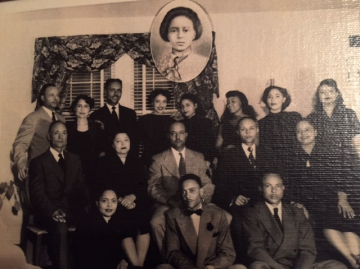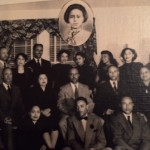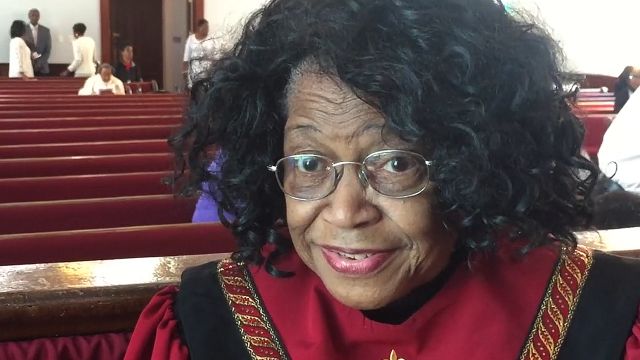
by Tamara Harris Johnson
Last week, a young lawyer who recently moved to Alabama asked me to go with her to see the movie, Selma. I had not planned to see it, mainly because movies that depict the mistreatment of others, particularly on the basis of race or ethnicity are difficult for me to watch. It is not entertainment for me. I decided to see the movie, because my family’s farm in Lowndes County, referred to as the Robert Gardner Farm, was one of the resting places on March 23, 1965, for the marchers from Selma to Montgomery. I grew up in segregated Alabama. I experienced, first-hand, the atrocities of segregation and hatred for fellow human beings, and my experiences do not come close to many of the experiences of those who were on the front-line fighting for human and civil rights for all people. I have never seen “Roots” to its conclusion; I never saw “12 Years A Slave;” I cannot watch movies about the Holocaust. It seems as if my personal experiences of segregation, even as a child, are too raw. I sat through, with tears, the movie Selma, and yes, this experience awakened emotions and memories that I had suppressed.
After watching Selma, I left the movie extraordinarily depressed. My depression did not result solely from the depiction and reminder of how badly African Americans were treated during this time. My depression stemmed from a vivid reminder of the many sacrifices that were made by Blacks and whites, including the sacrifices of life, to make this country better for all of us. My depression came from the realization that many of us do not know our history, do not care about our history, feel that all is well in America, and lack the understanding and appreciation that, in many instances, we are fairing worse now than before the struggles. Ignorance is not Bliss! The world is told never to forget the Holocaust, yet I constantly hear that our history is in the past and we need to forget it, get over it and move on.
A very painful part of our History took place in my lifetime. In an attempt for many parents to “protect” their children, some things were not discussed. I did not know, for example, the existence of Kiddieland, the Alabama State Fairground, until I was in the eighth or ninth grade because my parents never drove my sisters and me on the street where the fairground sat. They did not want us to ask to attend, because they knew that we could not attend, only because we were Black. Three of my four grandparents were bi-racial, and this remains something that my family rarely discusses as if a stigma were somehow placed on the manner of one’s birth. As a result, many of us never learned our personal history. My sisters and I were taught, however, that education (which, at one time in the not so distant past, it was against the law for Blacks to read or be taught to read) is the key to conquer injustice.
My family was considered affluent by some standards, yet that did not exempt us from the Jim Crow laws that affected all of us of color. Watching Selma, I was proud of the acknowledgment of courage of so many people who took part in the Civil Rights Movement. Selma touches all of us in some personal way. The image of the marchers from Selma to Montgomery was nothing short of awesome. Selma touched my family and me, personally. I am proud that one of the resting places for the marchers was my family’s farm in Lowndes County on Highway 80. My maternal grandparents, Billy and Roberta (Carson) Gardner, owned the farm. My Uncle Robert remained on the farm until his death, and he reared his family in Lowndes County. His wife and some of his children remain in Lowndes County, and some still live on the farm. At the time of the Selma to Montgomery March, the Gardner farm was owned by my grandparents’ children: Ransom Gardner, Annie Gardner Lowe, Hugh Carson Gardner, Minnie Gardner Gaston, William Gardner, Mary Belle Gardner Cummings, Thomas Gardner, Roberta Gardner Shorte, Helen Gardner Washington, Susie Marie Gardner Wood, Narvel Gardner Lowe, Elizabeth Gardner Jenkins, Clinton Gardner, Robert Gardner and Dixie Gardner Harris. Calls were made to as many of them as could be reached for permission for the marchers to rest on the farm. I recall that permission was given proudly. My Uncle Robert and his family, who lived on the farm, endured threats to their lives and property as a result of allowing the marchers to rest there. The farm remains the Gardner Family Farm; however, with pride, a sign identifies it as Campsite #3: Robert Gardner Farm.
Selma was an extraordinary movie for me, as it awakened so many of my emotions that were dormant, some by choice. I am hopeful that our young people, of all races, will see this movie and that it will educate them on the sacrifices that were made by many to benefit everyone. There remains much work to be done in the State of Civil Rights in America. Maybe this movie will serve as a catalyst to awaken dormant emotions and stimulate a newfound cooperative effort to work with, live with and judge people “by the content of their characters and not the color of their skins.”
Tamara Harris Johnson is the former City Attorney for Birmingham and is currently in private practice in Alabama.





